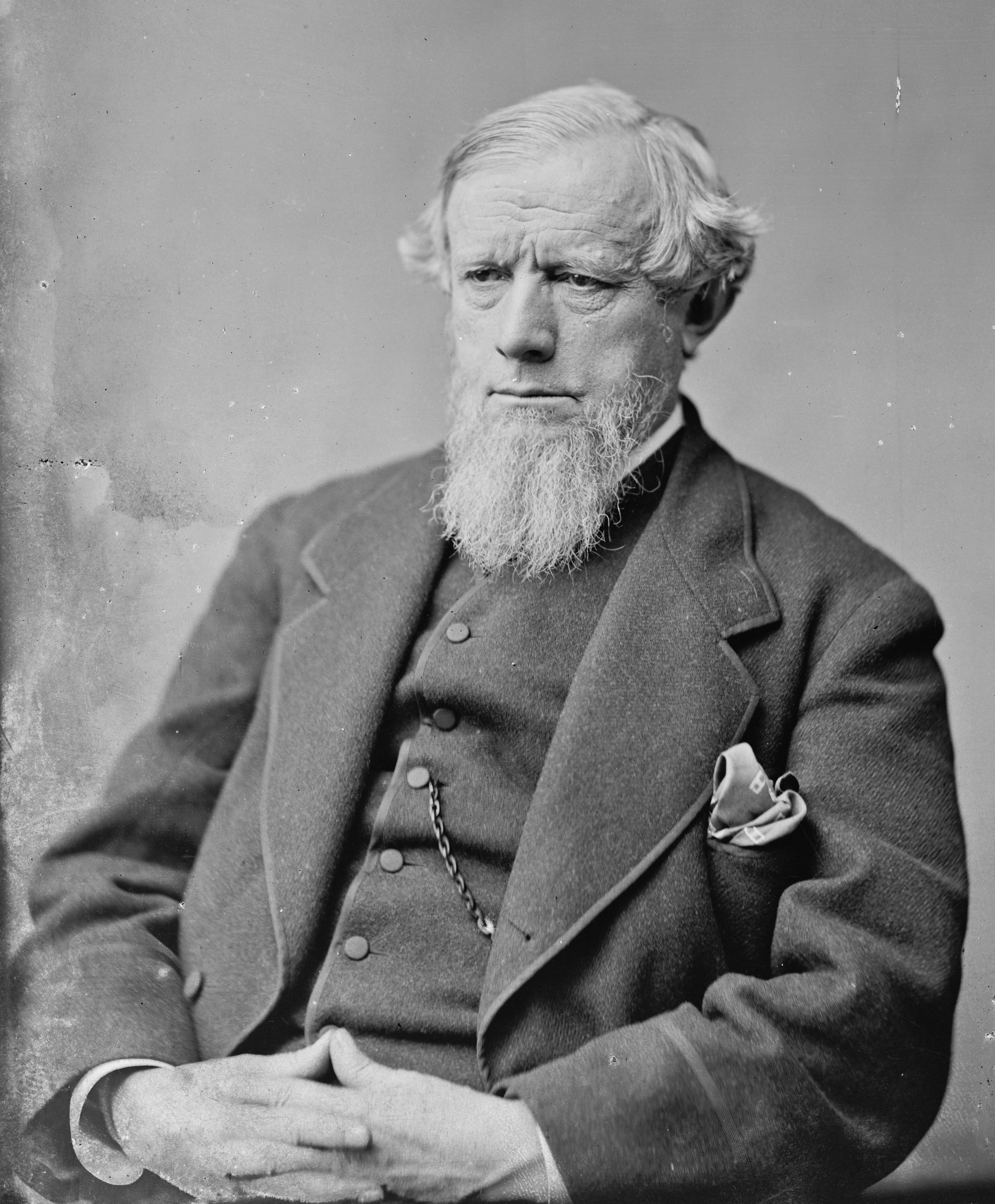- Allen G. Thurman
Infobox Senator
name=Allen Granberry Thurman
nationality=American

jr/sr=United States Senator
state=Ohio
party=Democrat
term=March 4 ,1869 –March 3 ,1881
preceded=Benjamin Wade
succeeded=John Sherman
order2 =President pro tempore of the United States Senate
term_start2 =April 15 ,1879
term_end2 =December 5 ,1880
predecessor2 =Thomas W. Ferry
successor2 =Thomas F. Bayard
date of birth=birth date|1813|11|13|mf=y
place of birth=Lynchburg, Virginia , U.S.
date of death=death date and age|1895|12|12|1813|11|13|mf=y
place of death=Columbus, Ohio , U.S.
spouse=Mary Dun Thomplins Thurman
profession=Politician ,Lawyer ,Judge ,Secretary Allen Granberry Thurman (
November 13 ,1813 –December 12 ,1895 ) was a Democratic Representative and Senator fromOhio , as well as the nominee of the Democratic Party forVice President of the United States in 1888.He was born in
Lynchburg, Virginia , to Pleasant Thurman and Mary Granberry Allen Thurman. Both his parents were teachers; his father also aMethodist minister. In 1815, his parents emancipated their slaves and moved toChillicothe, Ohio . He attended the academy run by his mother, and then studiedlaw as an apprentice to his uncle, William Allen (who later became a Senator from Ohio).At the age of eighteen, Thurman worked on a land survey, and at twenty-one became private secretary to the
Governor of Ohio , Robert Lucas.In 1835 he was admitted to the Ohio bar and became his uncle's law partner. In 1837] his uncle entered the Senate. On
November 14 ,1844 , Thurman married Mary Dun Thomplins (or Tompkins), who was to bear him three children. The same year he was elected to the House of Representatives as its youngest member. He generally supported the majority of the Democrats on all issues except internal improvements, on which he tended to vote with the Whigs. He supported the Polk Administration's conduct of theMexican-American War , spoke in favor of the 54o40' northern limit to theOregon territory, and voted for theWilmot Proviso , which would have bannedslavery from the territory gained fromMexico . Ironically, his support for the latter was due to anti-African-American prejudice, as he wanted to reserve this territory for white settlement.After a single two-year term, he left the House voluntarily to resume private law practice. However, in 1851, he accepted an appointment to the Ohio supreme court, where he served for five years, the last year as the chief justice. He then returned to private law practice.
In 1853 he moved from Chillicothe to
Columbus, Ohio , where he lived for the rest of his life.Thurman spoke out against the repeal of the
Missouri Compromise and opposed the pro-slaveryLecompton constitution forKansas . In 1860 he was a supporter ofStephen A. Douglas for President. He never accepted the right of a state to secede, but he felt it was unwise to fight a state that had already left the Union, so during theAmerican Civil War , he was opposed to Lincoln's policies, especially on emancipation. While he supported the war effort, he encouraged compromise and a political settlement.In 1867, he ran for Governor of Ohio, on a platform opposed to extending
suffrage to blacks, but lost toRutherford B. Hayes in a close election. The Ohio voters chose a Democratic state legislature, however, which selected Thurman as Senator for the term beginning in 1869. He there became a strong opponent of the Republicans' Reconstruction measures. In 1873 Thurman crafted a strategy that led to Ohio choosing once more a Democratic legislature, and electing Thurman's uncle William Allen as governor. The legislature elected Thurman to another term in the Senate. During the twelve years he served in the Senate, he became the leader of the Democrats in that body.In the 1876–1877 electoral college crisis, he helped to arrive at the solution of creating the Electoral Commission to settle the controversy, and ultimately served as one of the members of the commission, as one of the five Senators (one of the two Senate Democrats, and one of the seven Democrats altogether). As a Democrat, he voted with the seven-member minority, in favor of the
Samuel J. Tilden electors in all cases, but the Republican majority prevailed in all the votes, and Thurman's 1867 gubernatorial opponent, Rutherford B. Hayes, became President. (One of the House of Representatives' members of the Commission, fellow OhioanJames Garfield , was to become the President four years later, after being chosen by the now-Republican Ohio legislature to succeed Thurman.)In the Senate, Thurman served on the Judiciary Committee, becoming its chairman when the Democrats won control of the Senate in the 46th Congress. He also became President pro tempore of the Senate briefly, serving as president of the Senate because of the illness of Vice-President
William A. Wheeler , before Ohio chose a Republican legislature, which would not reelect Thurman. They first chose Garfield, but on his election to the Presidency, selected John Sherman to succeed Thurman beginning in 1881. Garfield did appoint Thurman as American representative to the international monetary conference inParis .Thurman was put forth as a
favorite son candidate in the Democratic presidential nominating conventions in 1876, 1880, and 1884. In 1888, he was selected by the incumbent president,Grover Cleveland , as his vice presidentialrunning mate , because Vice President Thomas Hendricks had died in office. But the Cleveland-Thurman ticket lost to the Republicans.Thurman died at home in Columbus.
External links
* [http://www.findagrave.com/cgi-bin/fg.cgi?page=gr&GRid=7052066 Allen G. Thurman] at
Find A Grave
Wikimedia Foundation. 2010.
